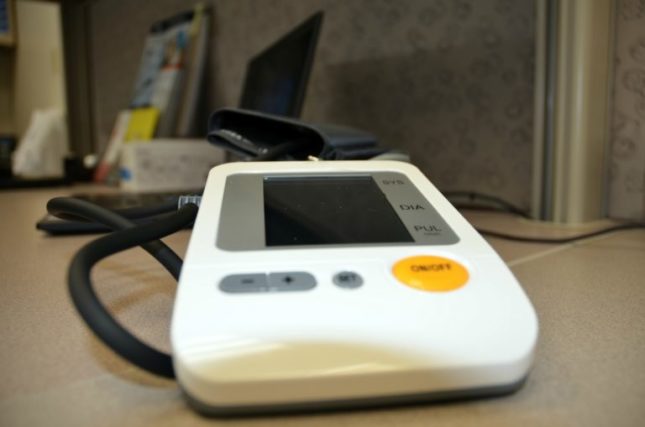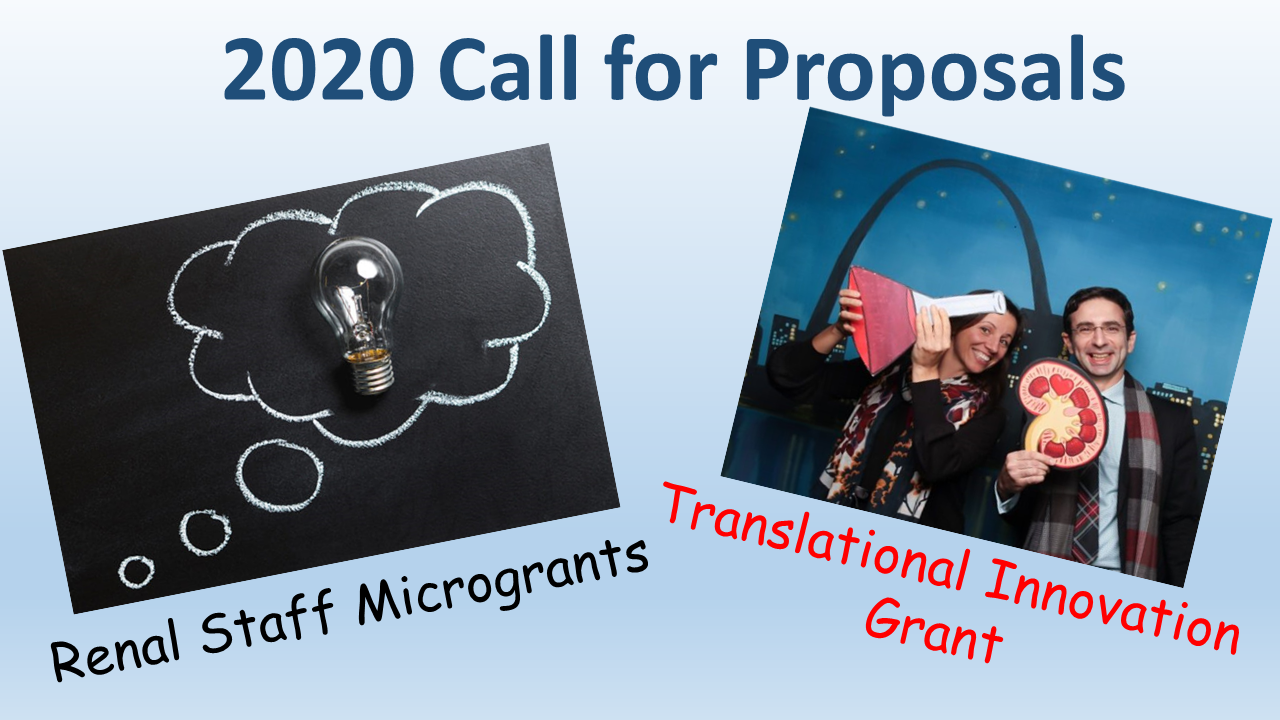Renal Staff Microgrants
Do you have a novel idea that would improve the atmosphere and lift spirits in the dialysis unit? What clever teaching tool could you use to stress the importance of diet to a patient new to dialysis? How would you improve patient care if you had the opportunity and money to do so?
Well, now is the time to take the next step and turn your idea into reality!
The Division of Nephrology is accepting applications for the 2020 Renal Staff Microgrant program, which provides resources for staff in our Forest Park, North County, and Chromalloy dialysis centers to undertake new projects that improve the care and experience of our dialysis patients. Successful proposals will feature an idea based on clinical experience within these units.
The division will fund up to three grants at a maximum of $5,000 total direct costs per year for each grant. The proposal must include a team consisting of at least one staff member and one senior staff member or faculty mentor from the Division of Nephrology.
Previously funded Renal Staff Microgrant projects have varied in nature, but all have been designed to improve our patients’ lives.
Microgrants have been awarded for:
-

Blood pressure monitor
A program that provided education and digital home blood pressure monitors for low-income patients in the nephrology clinic. Patients were also provided pill planners to help simplify medication management for themselves, family members and caregivers.
- A project that purchased laptops, medication organizers and measuring bottles to help improve patient adherence to medications, diet, and fluid restriction.
 Development of a web page to educate patients about clinical research and provide information on current clinical studies that are actively enrolling patients. This web page, Clinical Trials, is now up and running as part of the Division of Nephrology website. An introduction to the Nephrology Clinical Trials staff is also provided.
Development of a web page to educate patients about clinical research and provide information on current clinical studies that are actively enrolling patients. This web page, Clinical Trials, is now up and running as part of the Division of Nephrology website. An introduction to the Nephrology Clinical Trials staff is also provided.- Improving patient education in the renal clinic.
- Production of educational videos discussing home hemodialysis and peritoneal dialysis.
- A project to decrease catheter-related bloodstream infections.
Download the RFA here for more information on submitting an application for the 2020 Renal Staff Microgrant. Programmatic questions should be directed to Dr. Benjamin Humphreys at (314) 362-8233 or bhumphre@dom.wustl.edu
Applications are to be sent via email to Jean Smith (jean_smith@wustl.edu) no later than 5:00 PM, Monday, December 18, 2019. Grant awards will be announced in early January 2020.
Translational Innovation Grant
The Division of Nephrology is also accepting applications for the 2020 Translational Innovation Grant. Now in its fifth year, this program brings together a basic scientist and clinician from within the division to pursue a collaborative project with translational potential.
One grant will be funded in this cycle. This grant will be funded at a maximum of $50,000 (total direct costs) per year. Two payments of $25,000 will be made with the second payment contingent on completion of a progress report at six months. A summary will be due at the end of the funding period as well.
Previous Translational Innovation Grant Awardees:
-

Drs. Eirini Kefalogianni and Charbel C. Khoury
2019 – Eirini Kefalogianni, PhD, and Charbel C. Khoury, MD, worked together on a project titled Circulating immune cell types in diabetic nephropathy and their regulation by circulating TNFR1/2. Their aim was to characterize the forms and functions of circulating TNFR1/2 in diabetic nephropathy and test their effects on circulating immune cells with regard to surface receptor and cytokine expression profiles. Findings from the study could spur the development of drugs that target TNFR1/2 pathways for the prevention or treatment of diabetic nephropathy or other chronic kidney diseases.
- 2017 – Hani Suleiman, MD, PhD and Tarek Alhamad, MD, collaborated on a project called Novel Diagnostic Imaging Techniques for Transplant Glomerulopathy (TG), which used “super-resolution imaging” techniques to search for markers that could serve as identifiers for the etiology behind transplant glomerulopathy. Their imaging technique allowed a traditional light microscope to examine the glomerular basement membrane and glomerular endothelial cells without the need for electron microscopy (EM). Their goal was to find a sensitive, less expensive and more readily available method for diagnosing TG.
-

From left: Drs. Moe Mahjoub, Lai Kuan Dionne and Seth Goldberg
2016 – The winning proposal by Moe Mahjoub, PhD and Seth Goldberg, MD, titled Midbody Accumulation and Secretion in Polycystic Kidney Disease, examined how defects in components of the cell cytoskeleton contribute to the pathogenesis of polycystic kidney disease (PKD). The team also focused on identifying novel urinary biomarkers that could be used as a low cost, non-invasive method to monitor PKD progression and cyst burden.
- 2015 – Ying (Maggie) Chen, MD, PhD, and Andrew Malone, MD, were recipients of the inaugural TIG. Their proposal, Targeting Podocyte Endoplasmic Reticulum Stress in Alport Syndrome, focused on identifying pathogenic mutations in collagen genes that lead to Alport’s syndrome.
Download the RFA here for more information on submitting an application for the 2020 Translational Innovation Grant. Programmatic questions should be directed to Dr. Benjamin Humphreys at (314) 362-8233 or bhumphre@dom.wustl.edu.
Applications are to be sent via email to Jean Smith (jean_smith@wustl.edu) no later than 5:00 PM, Monday, December 18, 2019. Grant awards will be announced in January 2020.
